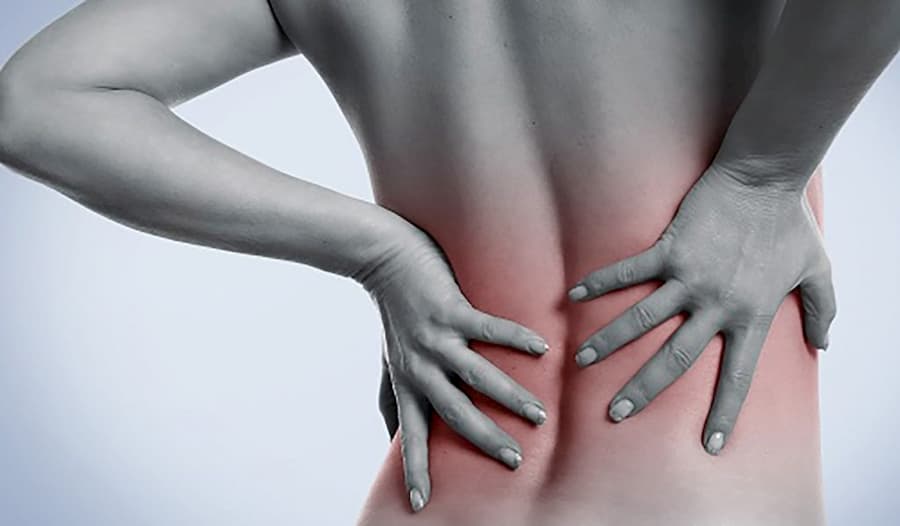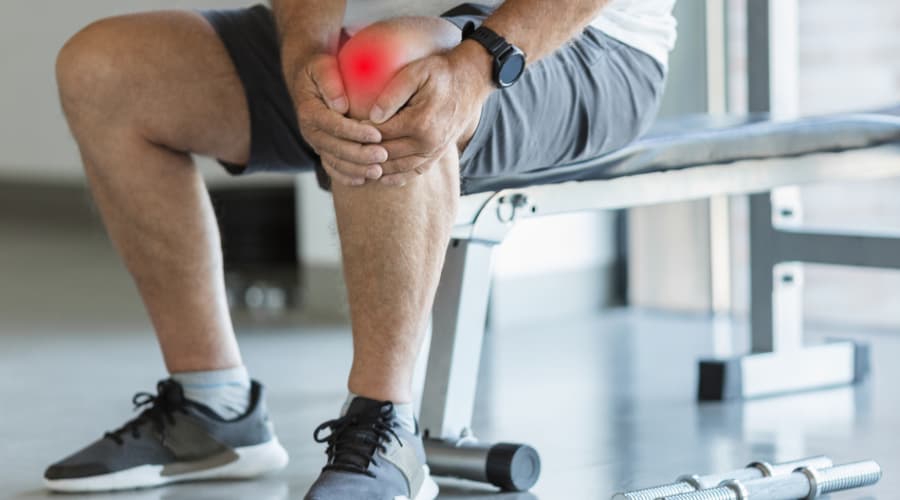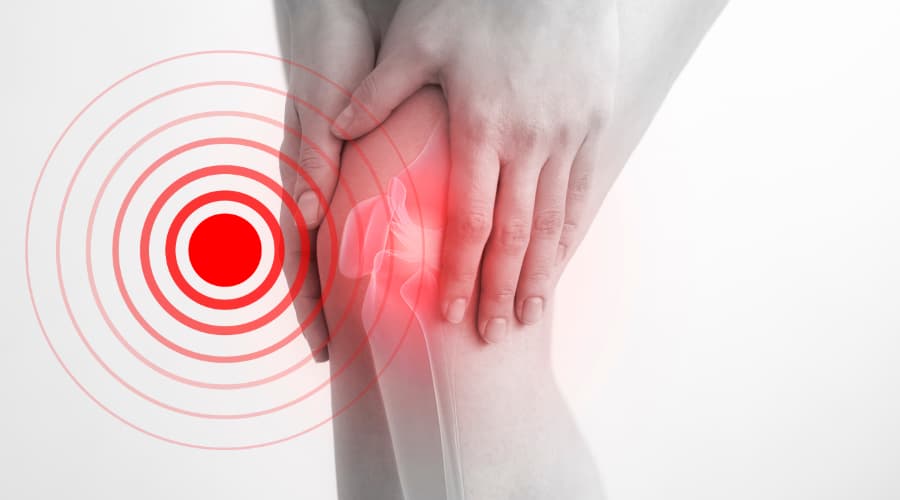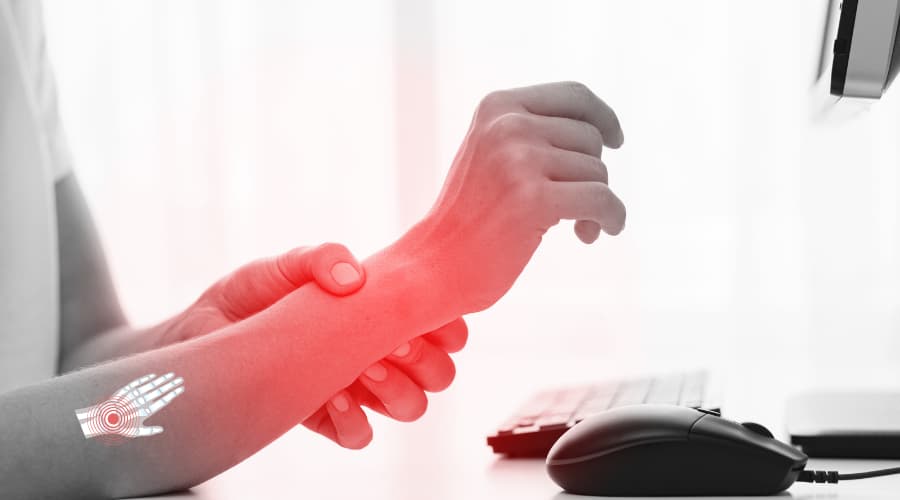If you are feeling a sharp pain in the front of your knee when bending it?, then you might be experiencing housemaids knee. Housemaids knee (prepatellar bursitis) is a condition that affects the lower leg and the kneecap caused by inflammation of a small fluid-filled sac (the bursa) in front of the kneecap. The pain can be excruciating, especially when you’re on your feet all day long.
What is Housemaids Knee?
Housemaids knee refers to an inflammation of the patellar tendon. This is a band of tissue that links the kneecap to the shinbone. The condition is also known as housemaids’ knee, gardener’s knee, and jumper’s knee.
This condition can affect people on their feet all day long – such as waitresses, nurses, gardeners, and warehouse workers. Housemaids knee affects women more than men because they tend to have weaker connective tissues than men due to differences in hormones. It’s important to note that having this condition does not mean that you’re not physically fit or active. You need to be aware of what triggers your pain to prevent your daily activities and cause further problems.
Symptoms of Housemaids Knee
The most common symptom of housemaids knee is a pain in the front of the knee. This knee pain can worsen when you bend, squat, or climb stairs. You might also experience swelling and stiffness in the knee. The pain can be so severe that it interferes with your daily activities.
Symptoms of Housemaids Knee
The most common symptoms of housemaids knee are:
- A sharp pain in the front of your knee when bending it
- The feeling that your knee is going to give out
- Swelling and stiffness around the kneecap
- Difficulty extending your leg fully or squatting down
If you’re experiencing any of these symptoms, it’s best to see your GP for confirmation and treatment moving forward.
What Causes Housemaids Knee?
It’s hard to pinpoint what causes this specific condition. However, certain factors may predispose you to develop this condition:
- Age – People who are most likely to develop housemaids knee include athletes and older patients who have spent most of their working life on their feet
- Obesity – This is because obese people usually have poor muscle tone around their knees, which makes them more susceptible to injury
- Direct trauma
- Repetitive activities such as kneeling on hard surfaces
Housemaids Knee Treatment
If you’re experiencing any of the symptoms of housemaids knee, it’s best to consult a your GP or chiropractor for proper diagnosis and treatment. Early diagnosis and treatment can help prevent the condition from getting worse. Take note that this is not a life-threatening condition, but it can interfere with your daily activities if not properly treated or managed.
Anti-inflammatory Medications
Your physician can prescribe these to give you temporary relief from the pain. However, it should be noted that long-term use of these medications is not advisable as they can cause further problems.
Moist Heat
Applying moist heat on your knee for 15 minutes 3 times a day can also help ease the housemaid’s knee pain.
Rest
This is usually recommended in the condition’s early stages when the pain is most severe. You may need to take a few days off from work or avoid strenuous activities until the pain subsides.
Stretching Exercises
You can stretch your hamstrings, calves, hamstring, and quadriceps to help improve the flexibility of your muscles. This is also helpful in alleviating pain in the knee joint because it provides you with more movement.
Physical Therapy
Your therapist can suggest specific exercises that will help strengthen your kneecap tendon so that there’s less stress on your patellar ligament. This procedure has to be done carefully under the guidance of a physical therapist who knows how to do it properly. If you’re experiencing housemaids knee symptoms, make an appointment to see one today.
Ice Therapy
Applying ice on the affected area for 10-15 minutes every two hours can help reduce inflammation and swelling. It is one of the simplest and most effective ways to treat this condition.
Orthotic Devices
Wearing orthotic devices such as knee braces or supports can also help manage pain caused by housemaids knee. This is because these devices provide stability to your knee joint and limit the range of motion, which reduces stress on your tendon.
Surgery
In some cases, surgery may be recommended if other treatments haven’t worked. The surgery will involve repairing or removing the damaged tendon. It is a more involved procedure that should only be done as a last resort.
Housemaids Knee Lasts for How Long?
There is no set time frame for how long housemaids knee lasts. It can vary from person to person, depending on the severity of the injury and the treatment methods used. However, with proper care and treatment, you can expect to see a significant improvement in your condition and a reduction in pain within a few weeks.
Recovery Process of Housemaids Knee
It’s important to keep in mind that the recovery process for housemaids knee can take a while.
- Follow your treatment program
- Rest
- Ice therapy
- Stretching exercises
- Anti-inflammatory medication (only when prescribed)
- Be patient – the results will take time
- Persevere through the healing process – it’s worth it in the end!
Tips to Prevent Housemaids Knee
Prevention is always better than cure. Follow these tips to help you prevent housemaids knee from affecting your daily life:
- Regular exercise
- Healthy diet
- Keep your weight in check
- Avoid kneeling for long periods when possible
- Focus on strengthening your quadriceps muscles which are responsible for straightening the knee joint
Housemaids knee may not be serious, but it can have an impact on how you move around every day if left untreated. There are several treatment options available, so you’re sure to find one that works for you. Be patient and perseverant during the healing process, as it can take some time before you see any significant results.
Related Articles
- There Are Many Reasons for Knee Pain
- Pain Relief Tips for Aching Joints in Winter
- Runners Knee, a Recipe for a Pain-Free Knee
- Osgood Schlatter Treatment in Tunbridge Wells
- Knee Pain FAQs




